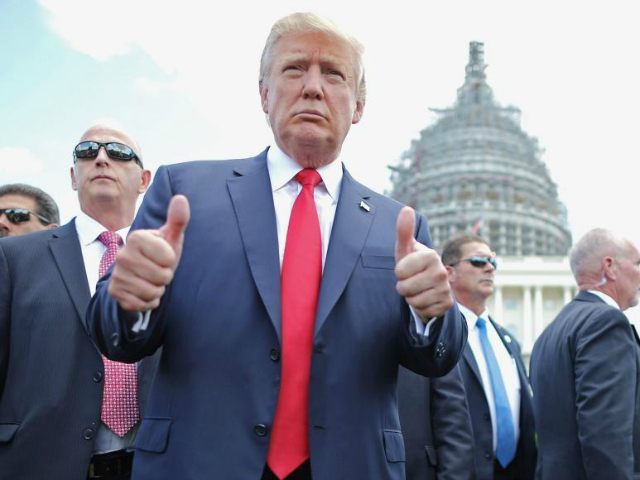President Donald Trump addressed criticisms Saturday that his use of Twitter to attack his critics is not presidential. “My use of social media is not Presidential – it’s MODERN DAY PRESIDENTIAL,” he tweeted, and added: “Make America Great Again!”
In another tweet, he pointed out that his use of social media had been crucial to his success in the 2016 presidential election — despite urging by the media, and even by his fellow Republicans, that he stop it.
One thing is clear: Trump has always used this method of fighting his critics. In 2012, he tweeted: “Everybody tells me not to hit back at the lowlifes that go after me for PR–sorry, but I must. It’s my nature.”
And long before Twitter existed, he was doing the same thing through more conventional methods. In one of the most memorable passages of his 1987 book, The Art of the Deal, Trump describes writing a nasty letter to Paul Goldberger, who was then an architecture critic for the New York Times. Goldberger had written a positive review of one of Trump’s projects — a “setup,” Trump says, for a negative review of another. He concludes by observing: “My people keep telling me I shouldn’t write letters like this to critics. The way I see it, critics get to say what they want about my work, so why shouldn’t I be able to say what I want to about theirs?”
Nothing has changed in thirty years, except for the medium.
More to the point, Trump’s habit of responding to critics on Twitter was highly controversial during the election — and he won anyway. As Deputy Press Secretary Sarah Huckabee Sanders noted last week: “The American people elected a fighter. They didn’t elect somebody to sit back and do nothing. They knew what they were getting when they voted for Donald Trump, and he won overwhelmingly.”
But is Trump’s conduct “presidential,” as he promised?
Trump’s critics often contrast his behavior with that of his predecessor, President Barack Obama, who was known for his cool demeanor. But Obama was not above insulting people from the bully pulpit — whether declaring that Cambridge had “acted stupidly” in arresting a black Harvard professor; opining that racism was “part of our DNA” as Americans; or accusing doctors of cutting out people’s tonsils and amputating their limbs to earn more money.
One difference is immediately apparent: Trump generally confines his attacks to members of the media and political elite, while Obama attacked ordinary people, or Americans as a whole.
That is one of the reasons Trump supporters — many of whom would rather he put Twitter aside, if only because of the controversy it often creates — have never abandoned him over his comments. Moreover, he is usually punching back: his targets almost always start the fight.
A further question is how “presidential” conduct is to be measured. Trump may flout social conventions, but never flouts the Constitution.
Liberal attorney and scholar Alan Dershowitz observed in February that Trump “avoided a constitutional crisis by appealing, rather than defying, an overbroad injunction” by the judiciary against his “travel ban.” (He was vindicated last week.) Obama, on the other hand, routinely ignored court rulings that he did not like.
Trump is certainly capable of playing by the rules of decorum. One would like a president to do so at all times. Yet recent history is littered with Republicans who played nice and lost elections, or backed down from a fight once in office. Controversial tweets may be a political hazard of a winning mentality.
Regardless, many Americans prefer a president who breaks the social norms of politics to one who breaks the rules of the Constitution, however politely.
Joel B. Pollak is Senior Editor-at-Large at Breitbart News. He was named one of the “most influential” people in news media in 2016. He is the co-author of How Trump Won: The Inside Story of a Revolution, is available from Regnery. Follow him on Twitter at @joelpollak.

COMMENTS
Please let us know if you're having issues with commenting.